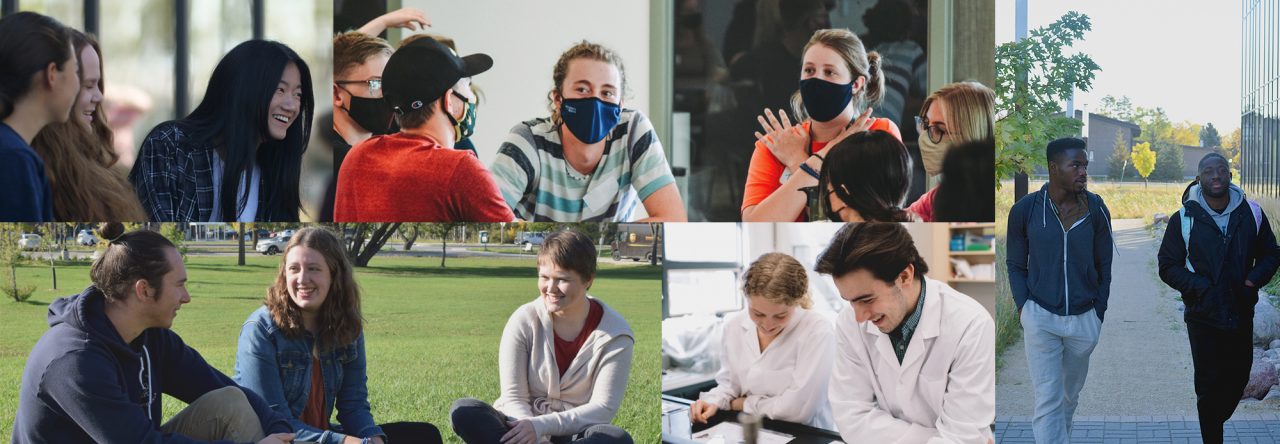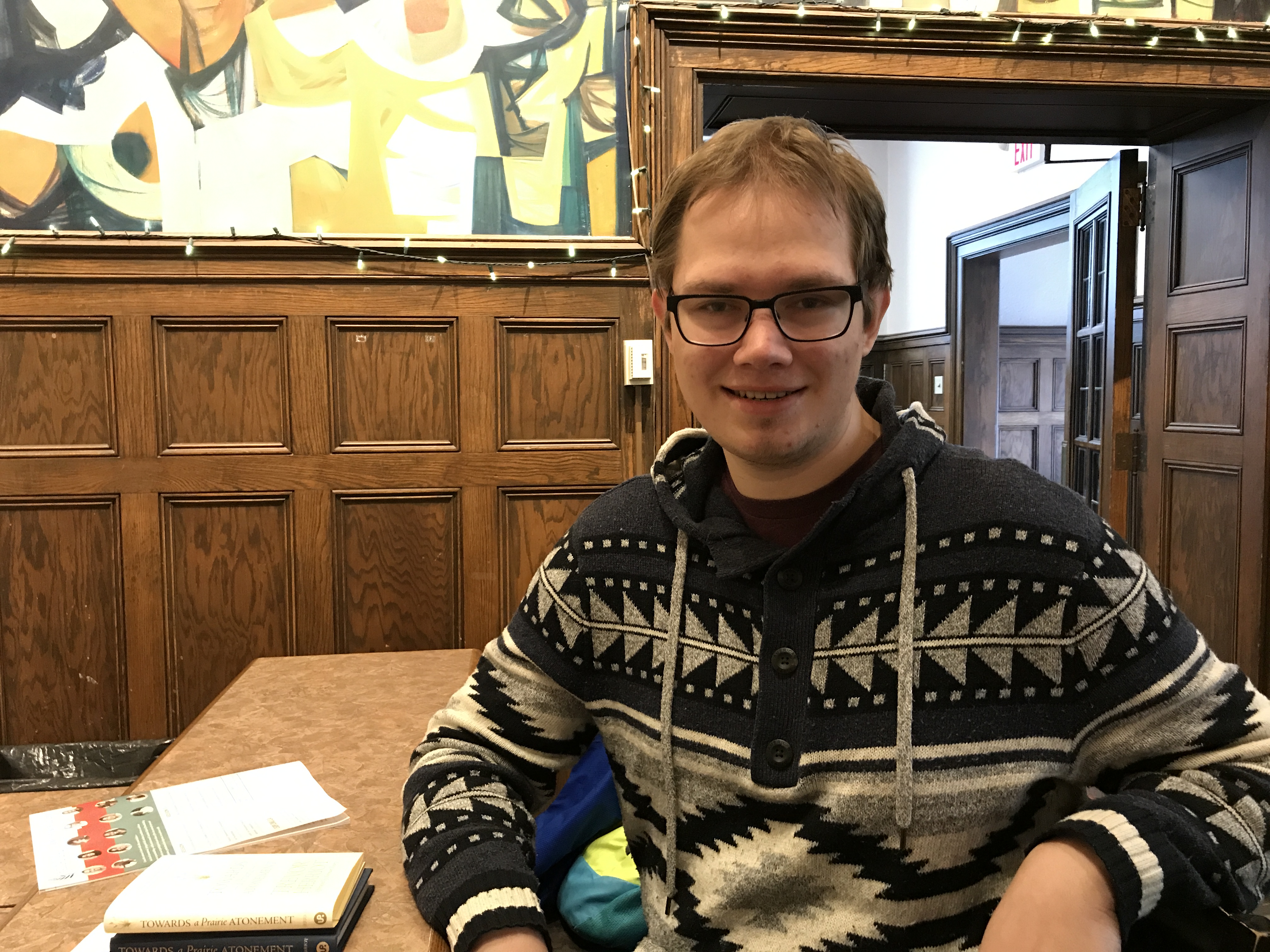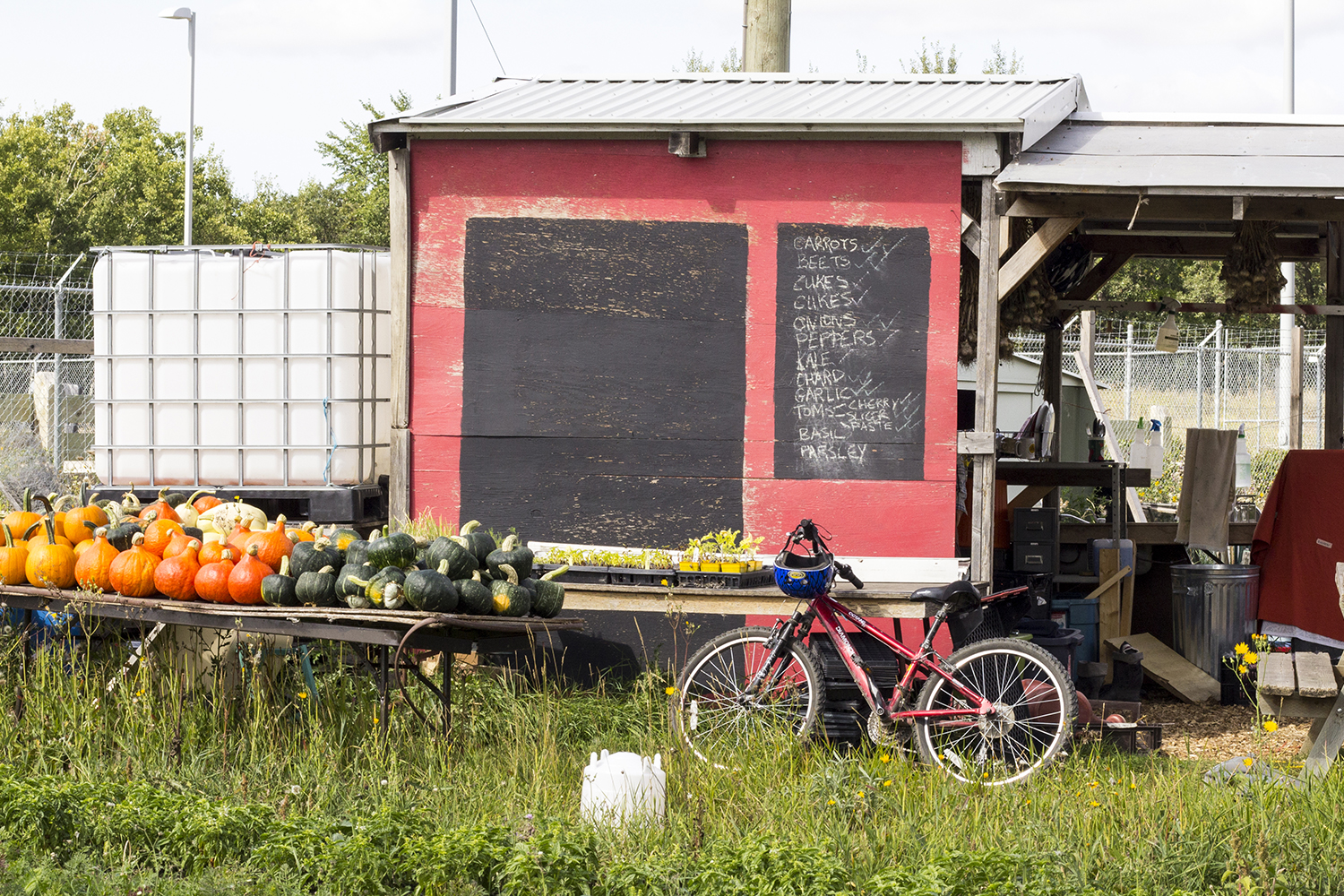I’ll be honest with you: I haven’t experienced anything to be quite so discouraging as Micro-Economics at 8:30 in the morning. But through these last few years at CMU, I’ve grown to appreciate how economics can be an expression of care for society.

My name is Jonathan Daman, and I just graduated from CMU with a Bachelor of Business Administration from the Redekop School of Business (RSB).
CMU taught me to take what I’m learning in the classroom and use it to impact my community.
The business program teaches students to care, and to bring that care into the real world. It teaches us to work toward a common good where people, the planet, and profits are balanced to build community rather than hinder it.
We talk about real issues in the classroom, like climate change, international development, and sustainability – topics that can be discouraging. I remember one of my classes with James Magnus-Johnston discussing economic inequality and feeling a bit of this despair. I asked him, “What’s the point of trying to correct the issue when it’s an impossible situation?” He simply replied that we must keep trying because eventually there will be a way.
The professors at RSB, and at CMU in general, convey their care for society into a sense of hope for the future, even in the face of adversity. Their example allows students to begin to realize that, although the real world is tough and can be discouraging, we can make meaningful change in the lives of those around us. Not only do they teach us these lessons in class but they use their expertise to consult on healthy growth within the Manitoba business environment.
Some may say the current news climate or capitalistic structure is full of flaws and despair. But through my studies at CMU, I have come to realize that even in the harshest of climates, and the worst situations, the difference makers are the ones that refuse to give up, who celebrate the small victories.
Economic Development that is done sustainably, with concern for the whole community, is one of the most life-giving areas of business. It has the power to strengthen communities and families, which can pass on healthy creativity into the future.
When we create opportunities for conversations within community that provide a platform to experience commonality, we move towards actions which truly will transform the world around us.

This post was adapted from a speech Jonathan Daman gave as part of With Gratitude. Daman just graduated from the Bachelor of Business Administration program at CMU’s Redekop School of Business (RSB). He is from Niverville, MB.



